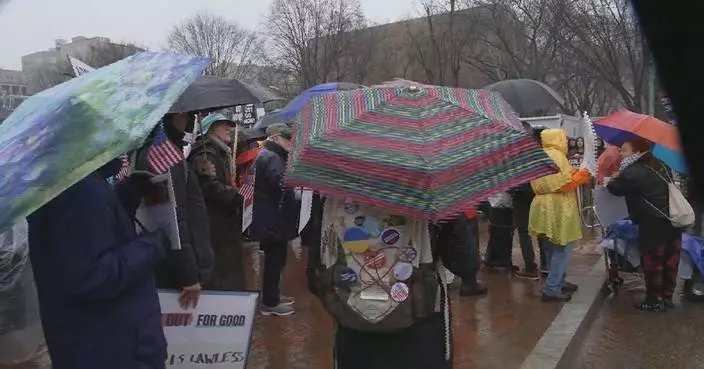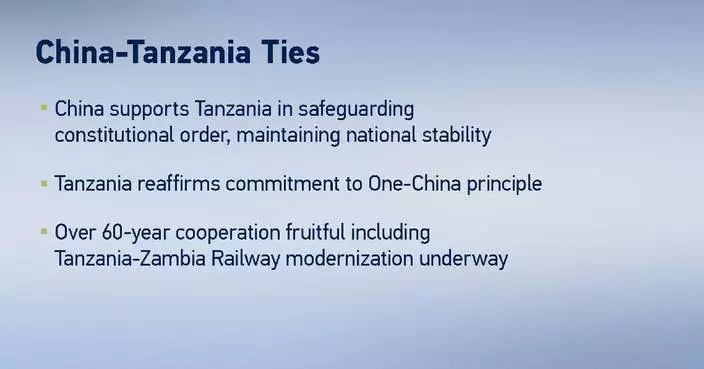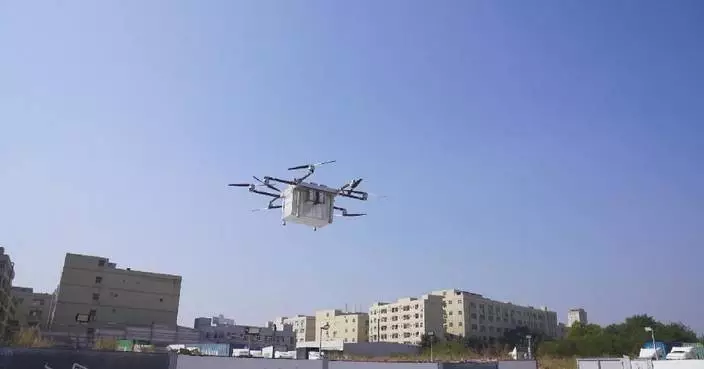United Nations (UN) Secretary-General Antonio Guterres condemned military escalation in the Middle East, highlighting concerns over Israeli attacks on Iran’s nuclear sites amid ongoing U.S.-Iran nuclear talks, urging restraint to prevent deeper regional conflict, according to a statement issued by the Office of the Spokesperson for the UN chief on Thursday.
The secretary-general is particularly concerned by Israeli attacks on nuclear installations in Iran while talks between Iran and the United States on the status of Iran's nuclear programme are underway, said Farhan Haq, deputy spokesperson for the secretary-general.
Click to Gallery
UN chief condemns Israeli airstrikes on Iran amid nuclear talks
UN chief condemns Israeli airstrikes on Iran amid nuclear talks
UN chief condemns Israeli airstrikes on Iran amid nuclear talks
UN chief condemns Israeli airstrikes on Iran amid nuclear talks
The secretary-general recalls the obligation of UN member states to act in accordance with the UN Charter and international law, the spokesperson said.
The secretary-general asks both sides to show maximum restraint, avoiding at all costs a descent into deeper conflict, a situation that the region can hardly afford, the spokesperson added.
Israel Defense Forces (IDF) said their jets struck many military and nuclear sites in different areas of Iran.
Iran's official news agency reported that two senior commanders of Islamic Revolution Guards Corps and two nuclear scientists were killed in the airstrikes.
Both Israel and Iran closed their airspace following the attacks, and Israel declared a nationwide state of emergency.
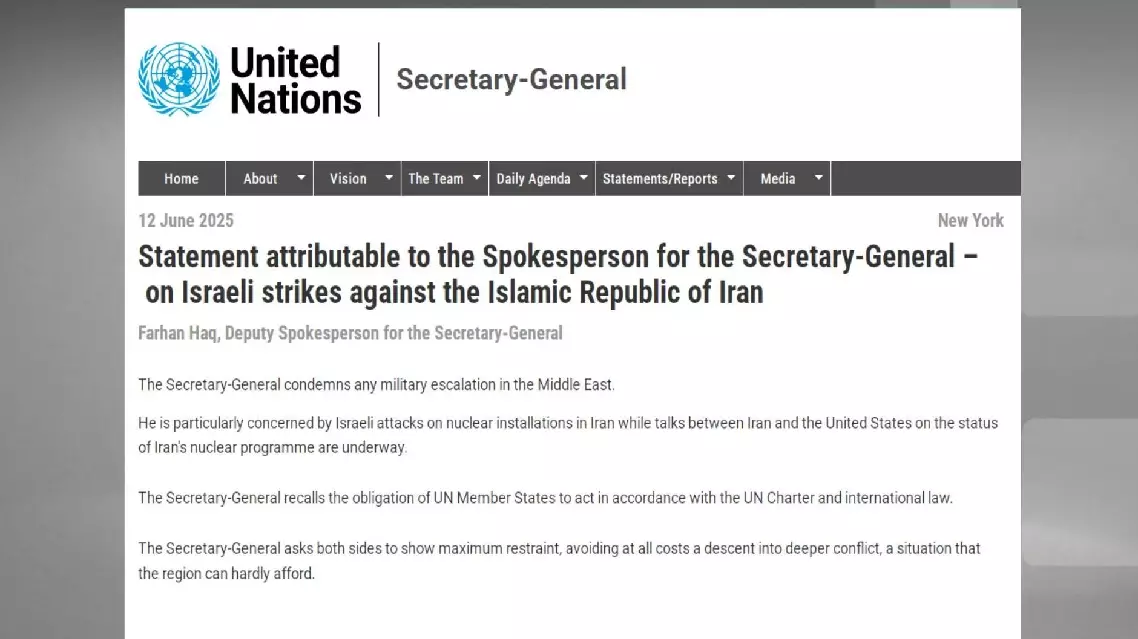
UN chief condemns Israeli airstrikes on Iran amid nuclear talks

UN chief condemns Israeli airstrikes on Iran amid nuclear talks
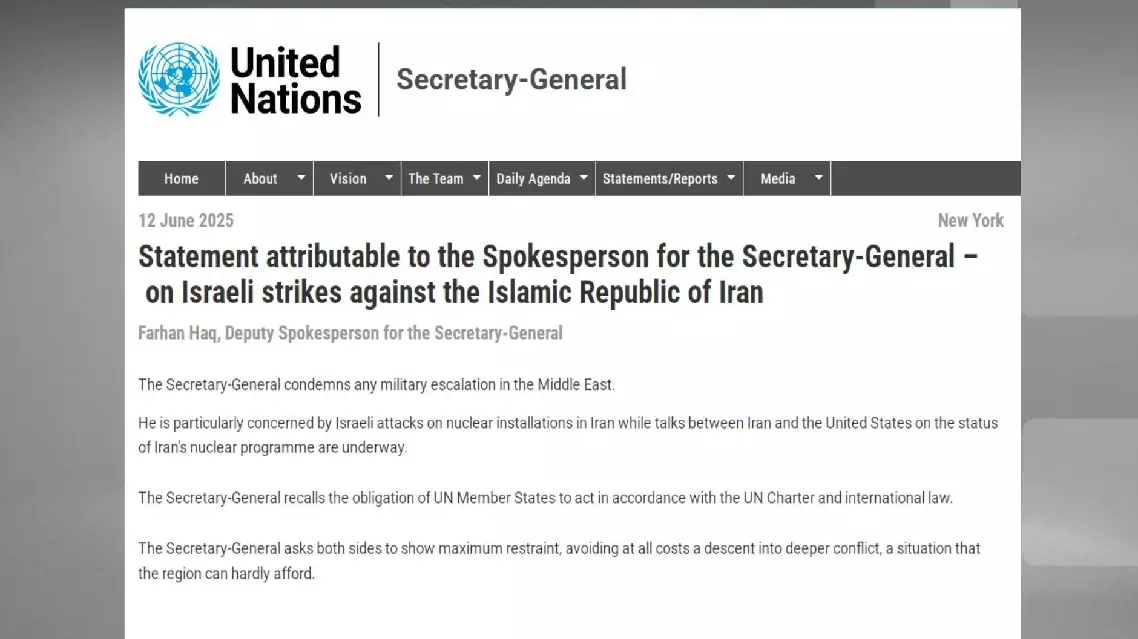
UN chief condemns Israeli airstrikes on Iran amid nuclear talks
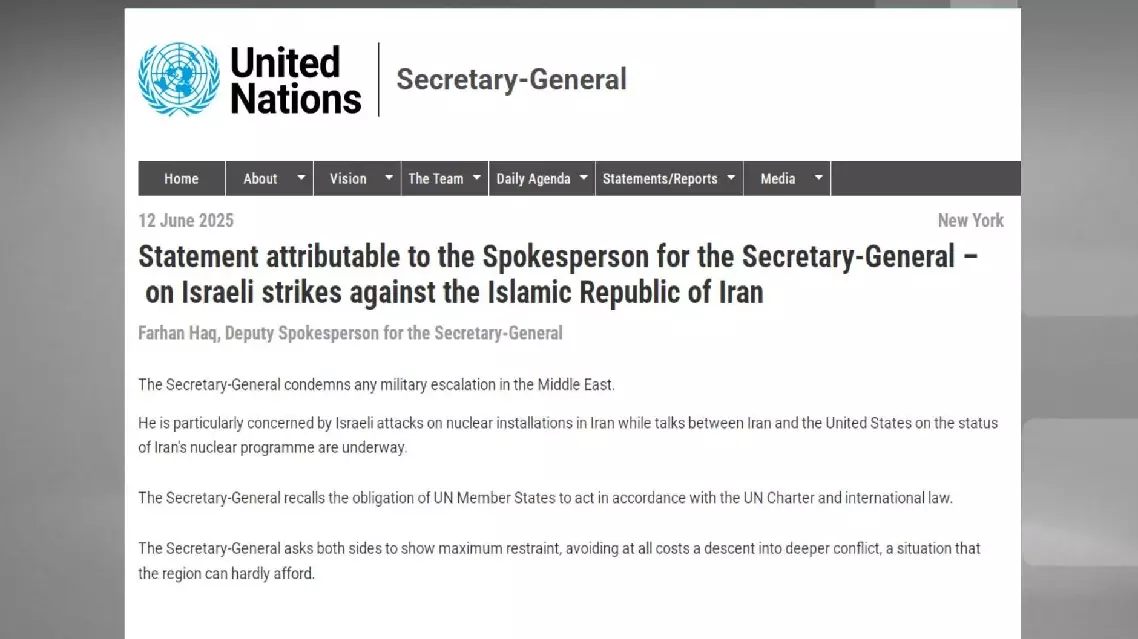
UN chief condemns Israeli airstrikes on Iran amid nuclear talks
Thousands of demonstrators rallied in Italy and Greece on Saturday to protest against U.S. military intervention in Venezuela, with protesters in Rome, Milan and Athens condemning Washington's actions and calling for respect for Venezuelan sovereignty.
In Rome, more than 1,000 demonstrators marched toward the area near the U.S. Embassy, calling on Washington to immediately release Venezuelan President Nicolas Maduro and his wife.
Police blocked roads around the embassy to prevent protesters from approaching the building, but demonstrators continued to denounce U.S. actions.
"First of all, we oppose U.S. imperialist aggression. This kind of behavior is shameful. The U.S. is attacking a sovereign country, and as [U.S. President Donald] Trump himself has said, this is for oil interests," said protester Giovanni Barbera.
Saturday's rally marked the second large-scale protest in Rome this month against U.S. military operations in Venezuela, following an earlier one on on Jan 3.
Participants included members of multiple political parties, labor unions and social organizations. The protesters held banners reading "Stop imperialist interference" and "Free Maduro," urging the international community to respect Venezuela's sovereignty and the will of its people, and condemning the U.S. for violating international law.
"We are protesting the way the U.S. handles international politics. Since the events of January 3, we have seen violations of international law, and we are very concerned about how the global situation is developing," said protester Stefano De Angelis.
Organizers said solidarity rallies in support of Venezuela were held in 30 Italian cities on the same day.
Meanwhile, similar protests were also staged in Greece. About 200 people gathered outside the U.S. Embassy in Athens, voicing support for Venezuela and opposition to U.S. military actions.
"We oppose U.S. imperialism and its attack on Venezuela. At the same time, the U.S. is also threatening Cuba, Mexico and Greenland. We must stand up against this behavior," said Greek protester Argiro Sirmakezi.

Protesters rally in Italy, Greece against U.S. military operation in Venezuela








